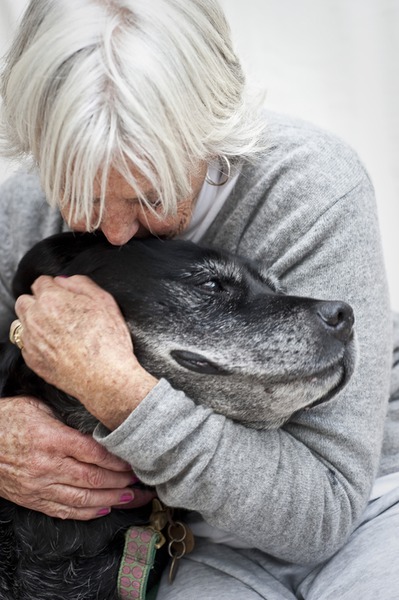As our beloved pets grow older, it’s not uncommon for them to face certain health issues. Arthritis is one such condition that can significantly impact their quality of life. Arthritis in pets, much like in humans, leads to the inflammation of joints, resulting in pain, stiffness, and decreased mobility. This article will look into how arthritis affects older pets and what you can do to manage this condition to keep your furry friends comfortable and happy.
What Is Arthritis?
Arthritis, also known as osteoarthritis or degenerative joint disease, is a chronic condition that worsens over time. It involves the breakdown of cartilage—the smooth, protective covering over the ends of bones. As the cartilage deteriorates, bones in the joints rub against each other, causing pain, swelling, and reduced range of motion.
Signs That Your Older Pet May Have Arthritis
Noticing the signs of arthritis early can make a significant difference in managing the condition. Here are some common symptoms to look out for in your geriatric dog or cat:
-
Limping or lameness
-
Difficulty in climbing stairs
-
Reluctance to play or walk
-
Stiffness, especially after resting
-
Visible pain when touched or handled
How Does Arthritis Impact Daily Life?
Arthritis doesn’t just affect your pet’s physical health; it can also take a toll on their emotional well-being. Imagine feeling constant pain and not being able to engage in activities you once loved. Here are a few ways in which arthritis impacts the daily lives of older pets:
1. Mobility Issues
The most noticeable effect of arthritis is limited mobility. Your pet may struggle to get up, lie down, or move around. They might also avoid stairs, jump less often, and even refuse long walks, which can affect their overall health and fitness.
2. Behavioral Changes
When pets are in pain, their behavior can change. They may become more withdrawn or irritable, shy away from being touched, or exhibit signs of anxiety. These behavioral changes are often a direct response to their discomfort.
3. Impact on Appetite and Weight
Pets with arthritis might lose interest in food due to pain or reduced physical activity, leading to weight loss. Conversely, some might gain weight because of decreased mobility, which can further exacerbate arthritis symptoms.
Managing Arthritis in Older Pets
While arthritis is a chronic condition with no cure, you can take several steps to manage your pet’s symptoms and improve their quality of life. Here are some effective ways to help your arthritic pet:
1. Regular Vet Visits
Regular vet visits are crucial for monitoring your pet’s condition and making necessary adjustments to their treatment plan. Routine check-ups can catch any new issues early, and your veterinarian can provide the best advice on managing arthritis.
2. Medication
Anti-inflammatory drugs, pain relievers, and supplements like glucosamine and chondroitin can help alleviate arthritis symptoms. Always consult your vet before introducing any new medication.
3. Physical Therapy
Physical therapy can be beneficial for arthritic pets. Techniques such as hydrotherapy, massage, and stretching exercises can improve joint function and reduce pain.
4. Weight Management
Maintaining a healthy weight is crucial for pets with arthritis. Extra weight puts added stress on the joints, worsening their condition. A balanced diet and regular exercise suited to their capability can help them manage their weight effectively.
Comfortable Living Environment
Making simple adjustments to your home can create a more comfortable living environment for your arthritic pet. Here are a few ideas:
-
Provide a soft, supportive bed to relieve joint pressure.
-
Use ramps or steps to help them get onto furniture or into the car.
-
Keep their living area warm to soothe aching joints.
-
Ensure easy access to food, water, and litter boxes.
Alternative Therapies
Alternative therapies can also provide relief for pets with arthritis. Options such as acupuncture, chiropractic care, and even dog laser therapy have shown promise in reducing pain and improving mobility.
Support and Care
Caring for a pet with arthritis can be challenging, but your love and attention can make a world of difference. Here are some tips to ensure they feel supported:
-
Be Patient: Understand that your pet’s mobility and behavior changes are due to pain and discomfort. Be patient and gentle with them as they navigate their daily activities.
-
Engage Them: Even with limited mobility, mental stimulation is essential. Engage your pet with puzzle toys, short walks, or simple games to keep their mind active and spirits high.
-
Monitor Their Health: Keep a close eye on your pet’s symptoms and progress. Regular dog check up at Hope Crossing Animal Hospital can help monitor their condition, adjust treatments, and ensure they are as comfortable as possible.
Final Thoughts
Arthritis is a common condition that impacts the lives of many older pets. However, with the right management and care, you can help alleviate their discomfort and enhance their quality of life. Remember, your love and support play a crucial role in helping your furry friend navigate the challenges of arthritis. Embrace the journey with patience and compassion, and always consult with your veterinarian for the best care plan tailored to your pet’s specific needs.





